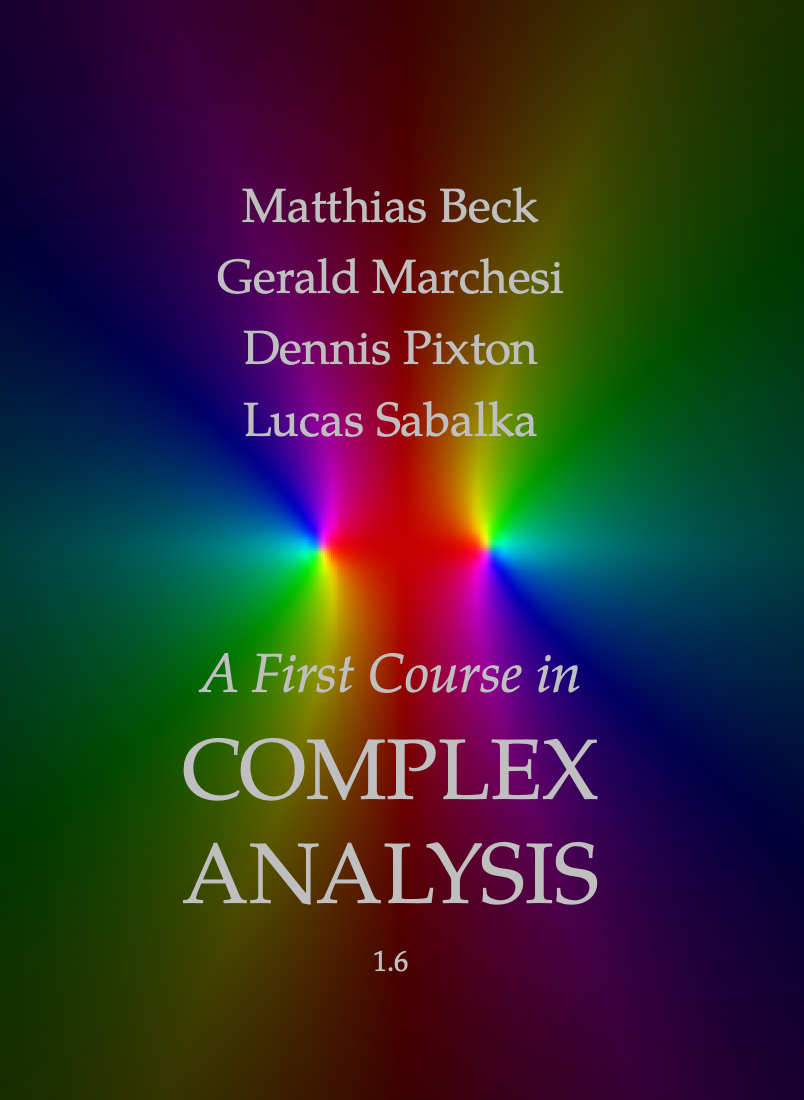A First Course in Complex Analysis
Matthias Beck, Gerald Marchesi, Dennis Pixton, and Lucas Sabalka
A First Course in Complex Analysis was written for a one-semester undergraduate course developed at Binghamton University (SUNY) and San Francisco State University, and has been adopted at several other institutions. For many of our students, Complex Analysis is their first rigorous analysis (if not mathematics) class they take, and this book reflects this very much. We tried to rely on as few concepts from Real Analysis as possible. In particular, series and sequences are treated from scratch, which has the consequence that power series are introduced late in the course. The goal our book works toward is the Residue Theorem, including some nontraditional applications from both continuous and discrete mathematics. More than 250 exercises and numerous SageMath prompts are spread throughout the text.
A First Course in Complex Analysis is an open textbook available in online and pdf formats, as well as in paperback printed by Orthogonal Publishing (also available from your favorite bookseller; make sure you order the current version 1.6).
Our book is featured in the Open Textbook Initiative by the American Institute of Mathematics. We would be happy to hear from anyone who has adopted our book for their course, as well as suggestions, corrections, or other comments.
Copyright 2002-2025 by the authors. All rights reserved. This work is licensed under a Creative Commons Attribution 4.0 International License.
